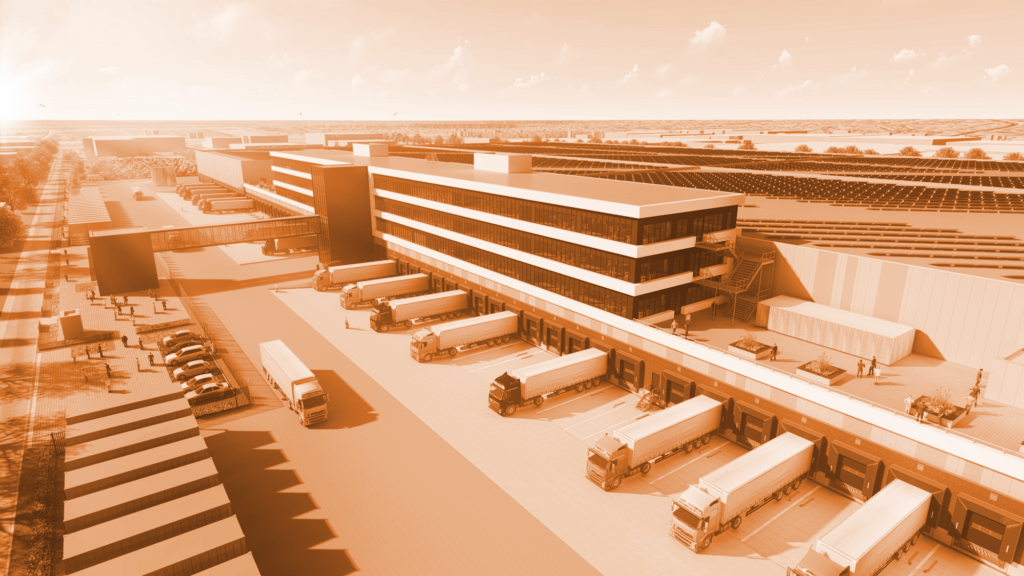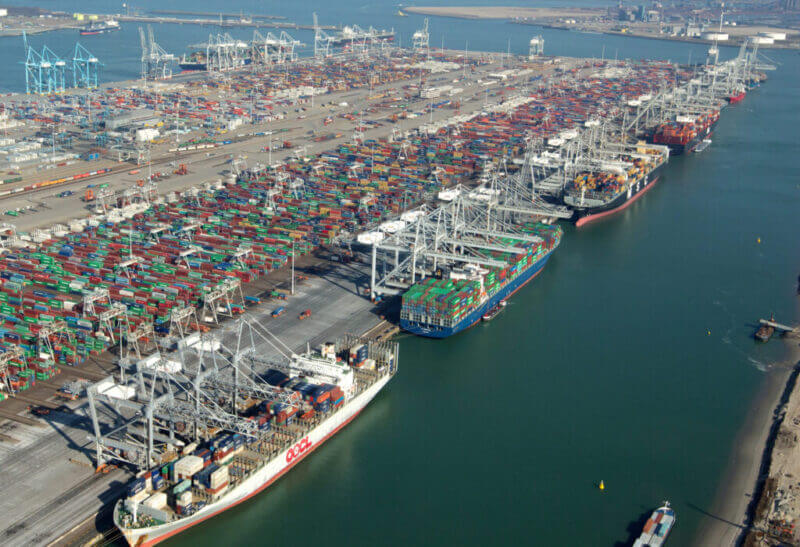FIVE WAYS TO SAVE WAREHOUSE COSTS AND THE ENVIRONMENT
CFOs talk about being the organization’s business partner because they have all the relevant business data at their disposal and can analyze and translate it into strategic plans for cost savings and revenue growth like no other. In today’s business world, however, too few CFOs are able to fulfil this role optimally. Also a attention point is: getting a handle on warehousing costs.
WHAT IS THE ROLE OF A CHIEF FINANCIAL OFFICER EMPLOYED BY A MANUFACTURING COMPANY
In this article we want to focus on the role the CFO can play in warehouse management optimization and reducing costs for his company and manufacturer. A good CFO looks at capital, investments, returns, OpEx (operational expenditure) versus CapEx (capital expenditure), Ebitda, etc. Especially when it comes to stock allocation optimization and real estate.
Most CFOs are seen primarily as the reporter of the past and not as the advisor or director of the future. Of course, the retrospective role of ‘reporter of the past’ is and remains a very important role – financial reporting must be reliable and compliant just because the law prescribes it – but in my opinion it is a pity that the competences for a forward-looking role as ‘future-oriented business partner’ are often insufficiently used. That is the focus of this article.
WHAT IS THE ROLE OF A WAREHOUSE MANAGER IN A SHIPPER ENVIRONMENT?
Provides materials, equipment, and supplies by directing receiving, warehousing, and distribution services; supervising staff. A warehouse manager is also regularly (more and more) responsible for fulfilment services because of the rapid growth of the e-commerce market. This area of attention remains further out of scope here. A warehouse manager always has a primary goal. All inbound goods movements must be able to be processed and stored. This officer always strives for overcapacity in order not to have to sell ‘no’ internally in the company. In Europe, it is generally assumed that there is an average of more than 20% vacancy in warehouse locations.
WAY 1 | DO NOT IMMEDIATELY THINK OF A WAREHOUSE LOCATION OWNED AND OPERATED BY YOUR OWN COMPANY.
In case of overflow, seasonal patterns, events, promotional items, special parties, etc., it is more convenient and cheaper to remain flexible. Don’t immediately think about building warehouses and/or hiring long-term capacity from third parties. After all, there is enough empty space in the logistic hotspots of Europe and beyond.
Example: is there too much produced use than empty warehouse space of others. This is an excellent situation for both parties.
WAY 2 | DO NOT BUY OR RENT WAREHOUSE SPACE IN ADVANCE BUT STAY FLEXIBLE.
The question is: purchase forecasted warehouse space in advance or make the shipper’s loading side more flexible? It’s logical that a responsible thinks let’s avoid risks. But of course that has a price. To avoid risks, a large part of Europe’s warehouses is on average more than 20% empty (80% coverage forecast with 20% over capacity).
The sustainable alternative is to apply a flexible warehouse layer and exchange warehouse capacity.
It is of course possible and desirable to register the 20% overcapacity in a warehouse network portal. To make empty warehouse space cost-effective or profitable. If all current registered square meters are added up, for example Flexe (USA) and Stockspots (NL) and other players are today major brokers in warehousing.
WAY 3 | USE AIRBNB FOR WAREHOUSE LOCATION PORTALS AND USE EACH OTHER’S EMPTY SPACE VIA A EUROPEAN WAREHOUSE NETWORK PLATFORM.
On demand warehousing is committed to fight warehouse waste. At least 20% of existing warehouses has temporarily empty spots while new DC’s continue to be build. To reduce this idle storage capacity they simply match it (via algorithms) with owners of goods who are looking for space. Today this platform already matched more than 600 warehouse providers with shippers and manufacturers all over Europe.
Due to this supply chain optimization we are able to realize cost savings and create a greener environment for our next generation.
An easy to book web-portal is providing you flexible warehouse space and additional services in record time. Frontrunner in striving to make a difference. Working with the best, for the best, to meet customer needs. More and more shippers are working in their supply chain with flexible contracts for warehousing.
WAY 4 | INVOLVE WAREHOUSE SPACE OPTIMIZATION AND IDLE SPACE REDUCTION IN OPERATIONAL EXCELLENCE, ABC, RATIO ANALYSIS AND KPI MONITORING DASHBOARD.
As mentioned at the beginning of the article: what is the role of the CFO in this field of warehousing and distribution? Is the CFO sufficiently involved and active in the field of effectiveness, efficiency and forecasts of total warehouse capacity and at what operational costs? When and where does steering and control take place? A number of things are part of the dashboard and/ or monitoring, such as:
- What is the warehouse occupancy rate (normal/ actual/ variance)
- Spaced utilization: average percentage of space utilized
- What are the internal procedures for issuing and purchasing warehouse space?
- The real estate decision: ownership and/ or rent?
- Can the insurance premium for warehouse space be reduced?
- Uses of warehousing equipment: wouldn’t it be better to rent equipment that is used infrequently in a suitable third party warehouse?
WAY 5 | IN THE NETHERLANDS, THE DEBATE ABOUT BOXING BY CONSTRUCTION WAREHOUSES IS ON EDGE. THINK CAREFULLY ABOUT NEW CONSTRUCTION!
The logistics real estate market faces many challenges this year. The sector will have to come up with solutions, as social resistance to these ‘ugly block boxes’ is on the rise.
Sustainability matters. The continuous construction of large distribution centres and warehouses is on the cutting edge in the Netherlands.
Farms, green meadows and local residents. Sometimes everything and everyone has to make way for the new construction of meter-high distribution halls. Large distribution centers are increasingly leaving their mark on the Dutch landscape. The logistic mega halls often look like block boxes. The Netherlands is ‘doomed’, experts conclude. Measures are requested and expected from the Dutch government.





ON DEMAND WAREHOUSING IS FLEXIBLE, SCALABLE AND SUSTAINABLE
Author is Harry Luijk – Logistics & Supply Chain Professional & Partner at Merlyn Consult.







